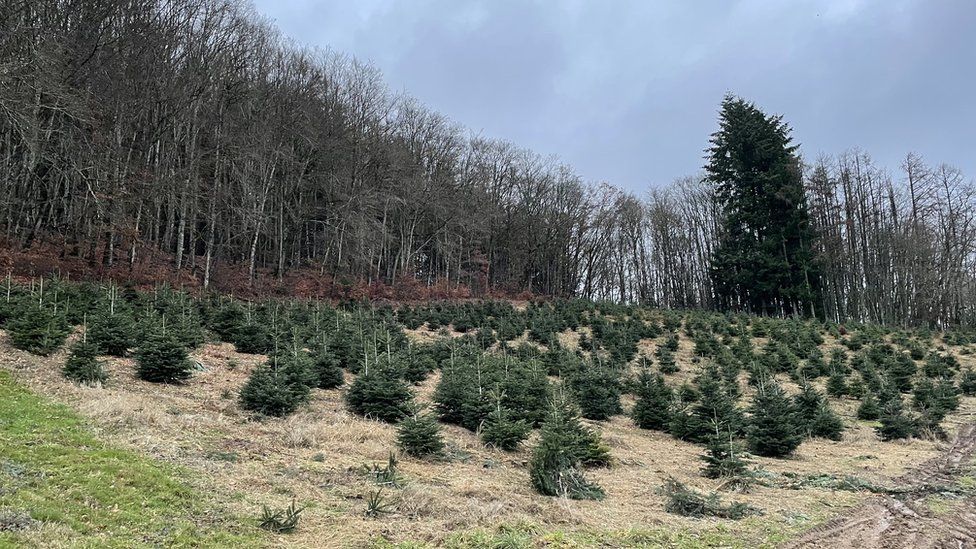-

-
-
Loading

Loading

The ethical implications of Christmas trees are being debated in the Morvan Natural Park in Burgundy, France. The region is the country's top producer of Christmas trees, with over a million baby firs grown for the market annually. While some locals appreciate the economic benefits and job opportunities, others are concerned about the negative impact on the environment. Only a small percentage of Christmas tree plantations in the region are organic, with the majority relying on chemical treatments. The use of herbicides and pesticides is acknowledged to have an impact on water resources, and efforts are being made to minimize this effect. Activists argue that Christmas tree production kills off biodiversity and contaminates rivers with chemicals. Consumers are also becoming more aware of the origins of their Christmas trees and questioning the environmental consequences. While some have stopped buying real trees altogether, others are unsure whether importing plastic trees from China is a better alternative. "Green" alternatives such as wooden tree sculptures or homemade assemblies are rarely considered. Producers in the Morvan are increasingly facing inquiries from buyers about the source of their trees, although this has had only a limited impact on sales. Efforts are being made by some companies to minimize the use of chemicals and promote biodiversity in their plantations, but the reality is that hardly any Christmas tree production is chemical-free. Despite attempts to produce environmentally friendly trees, they are often more expensive and less appealing visually. Therefore, it can be concluded that Christmas trees are not as "green" as they may seem.